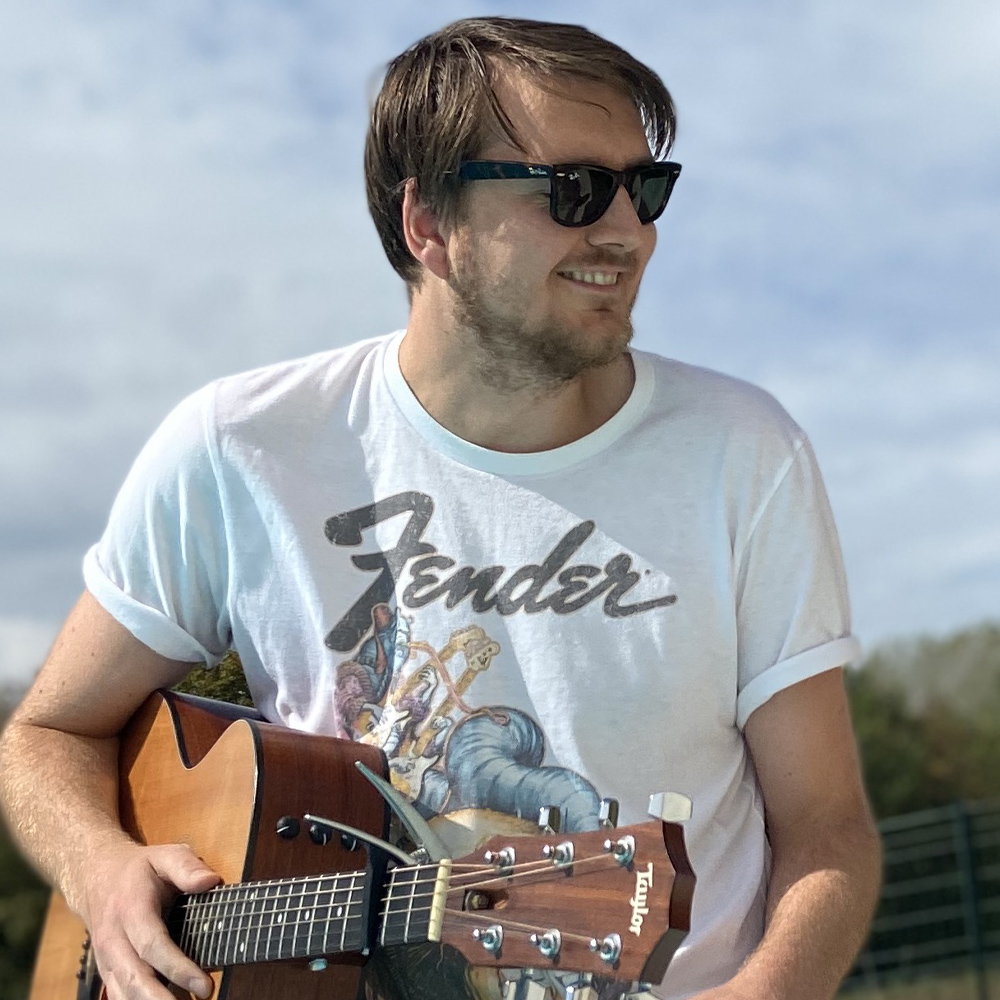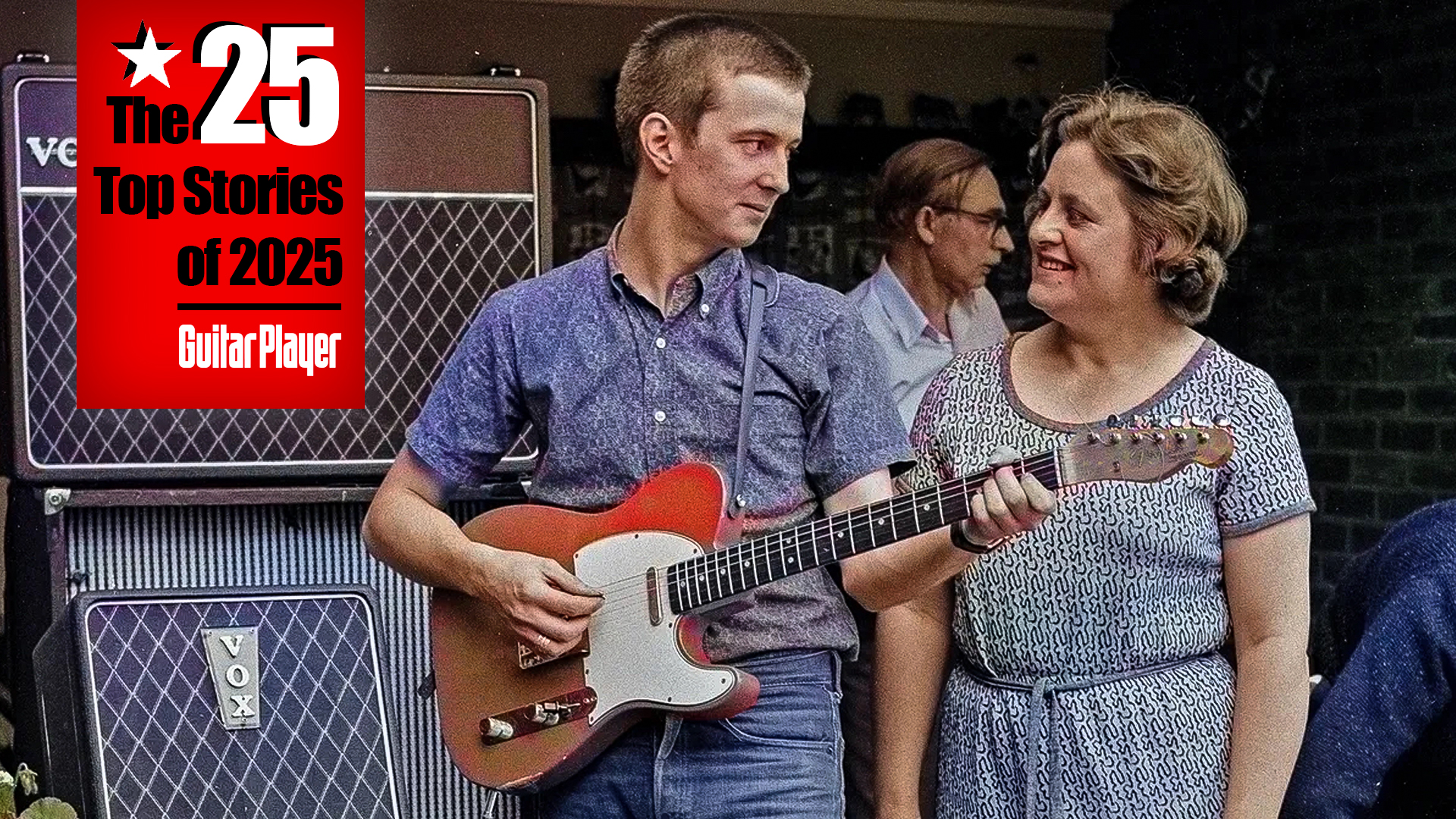Best guitars for kids 2026: Acoustic and electric models for your budding guitar hero
Our pick of the best guitars for kids; electrics and acoustics from the likes of Yamaha, Squier, Taylor and more
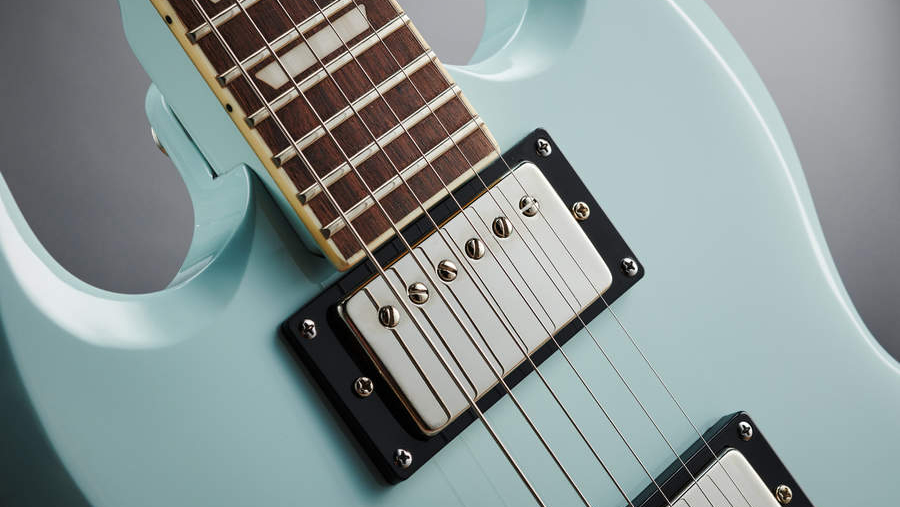
1. Quick list
2. Best acoustic overall
3. Best for older kids
4. Best premium option
5. Best kids classical
6. Best electric overall
7. Best budget electric
8. Best electric 11+
9. Best electric for 3+
10. Buying Advice
11. How we test
If you’ve got a little one wanting to make an entrance into the wonderful world of music-making, then investing in one of the best guitars for kids might be just the encouragement they need.
Learning an instrument is great for kids, as it helps them learn all manner of skills and is excellent for their development. Of course, when looking for the best guitars for kids, there are all sorts of things to consider, what with the many different brands, types and models out there.
We’ve put together a list of the best guitars for kids, including a selection of both acoustic and electric models to help cut through the noise. Any one of these is likely to serve as a wonderful first instrument or maybe an upgrade from their existing guitar.
Quick list
Acoustic guitars for kids
You can trust Guitar Player.
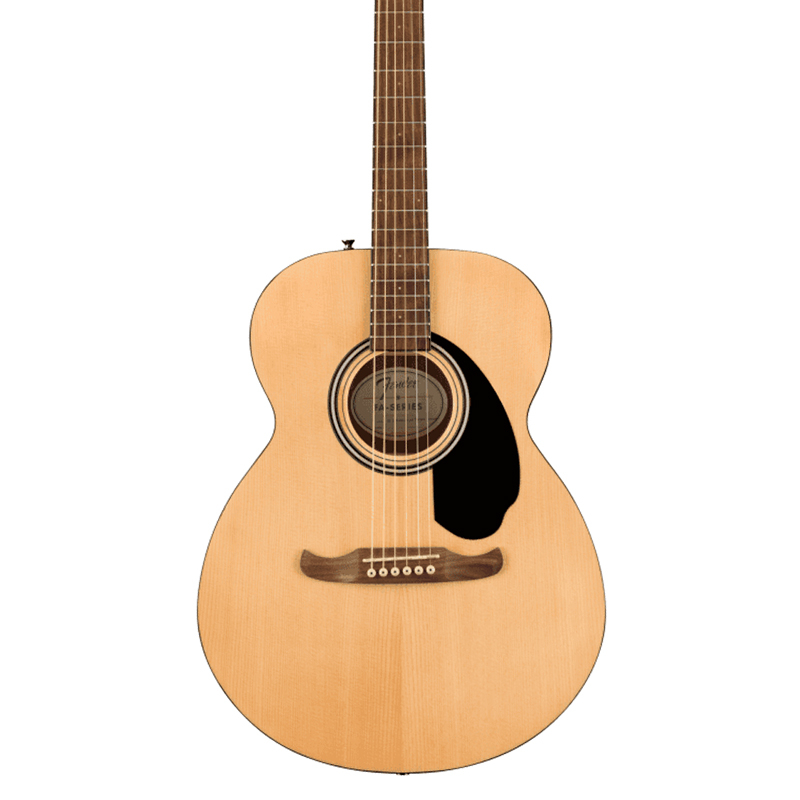
This concert-sized offering from Fender makes for a perfect starter guitar for kids. The concert body shape is slightly more compact than many other acoustic guitars, allowing smaller arms and hands to reach around to the strings and frets.
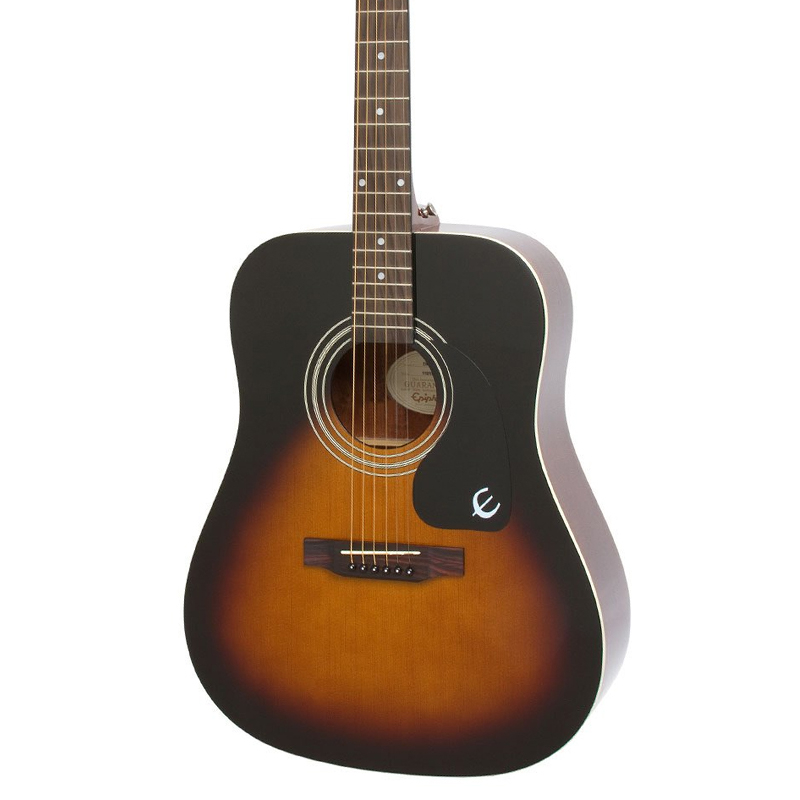
The Epiphone DR-100 has been around for quite some time now. It marks one of the entry points into the Gibson family of brands and is ideal for kids, particularly those on the bigger side.
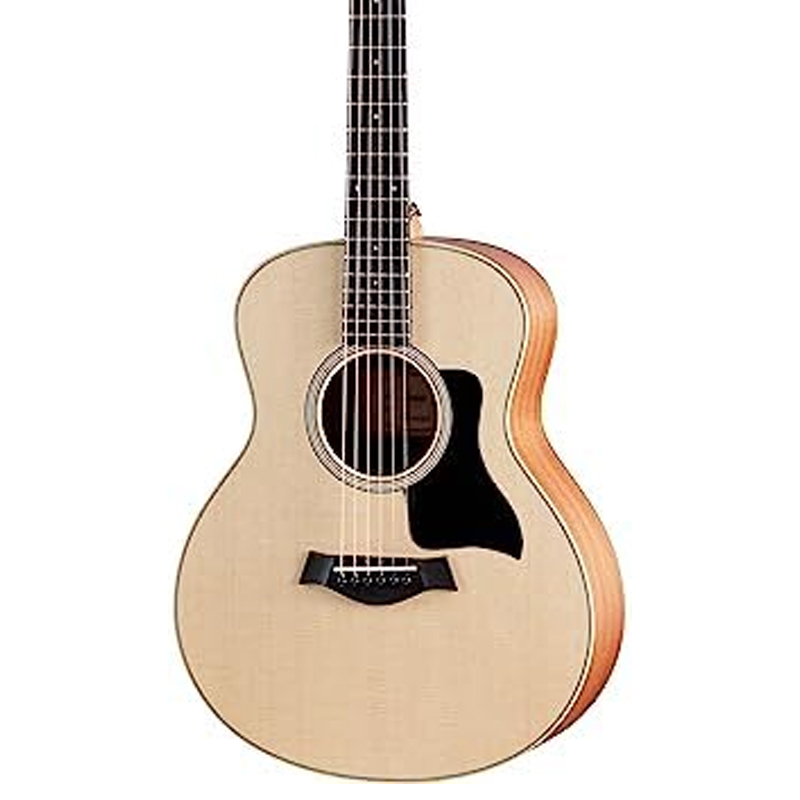
The Taylor GS Mini is fairly close to being a 3/4 guitar, but it retains the same string spacing as a full size guitar. This means that for kids just starting out, chord stretches and scales are made easier, as the frets are all slightly closer together.
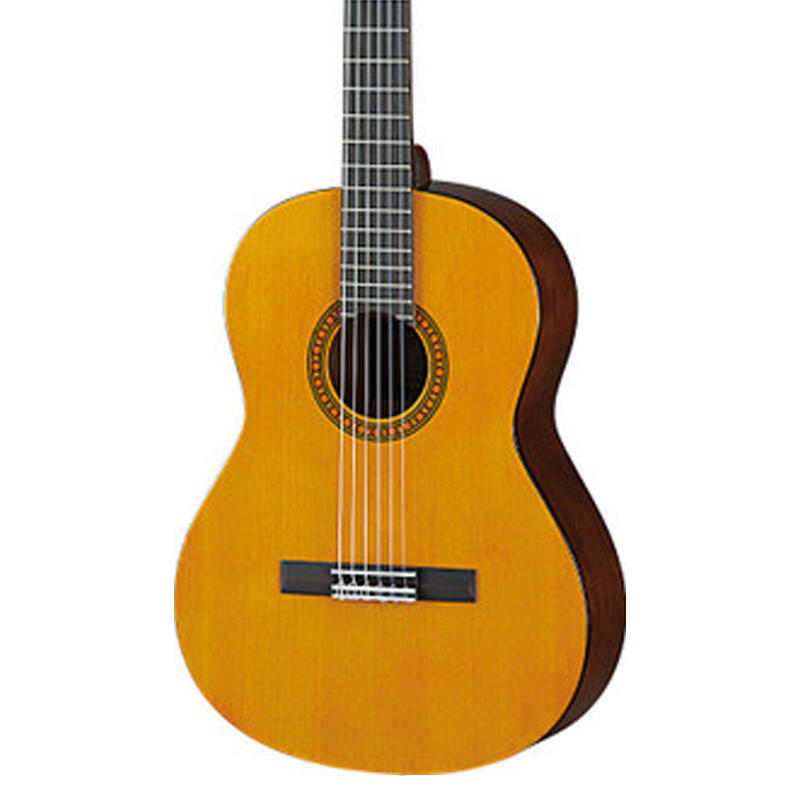
Some kids just starting out might find steel strings a little too tough. That’s where nylon-strung guitars can be really helpful. The strings feel much softer underneath their fingers, so they’re less likely to be put off playing altogether whilst they’re building up the calluses on their fingers.
Electric guitars for kids
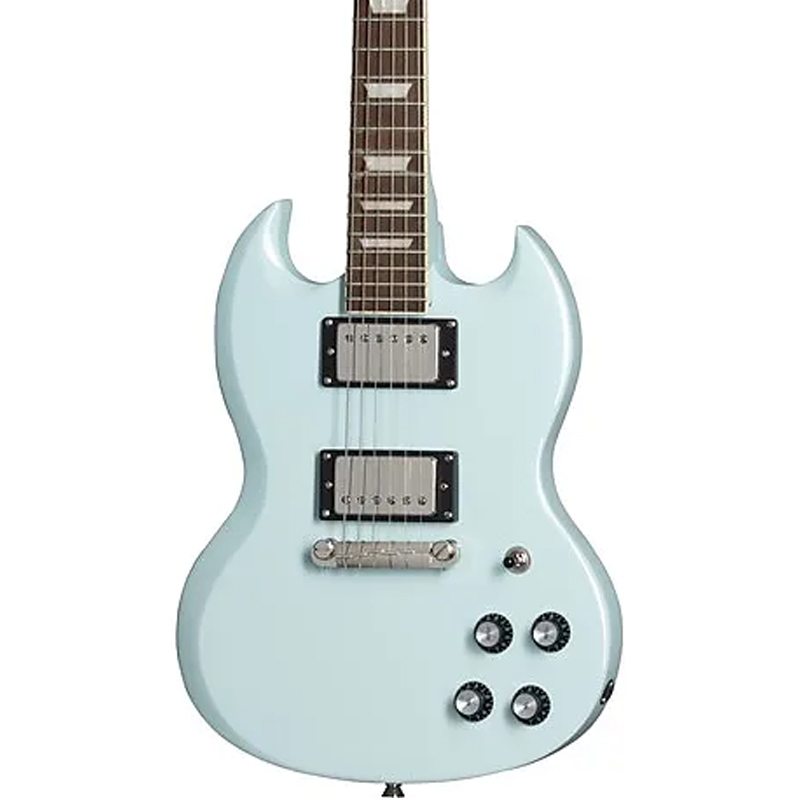
Built especially with younger players in mind, the Epiphone Power Players SG is built extremely well, and features a pair of really punchy sounding humbuckers. This makes it one of the best guitars for kids who want to explore the world of rock, blues or metal.
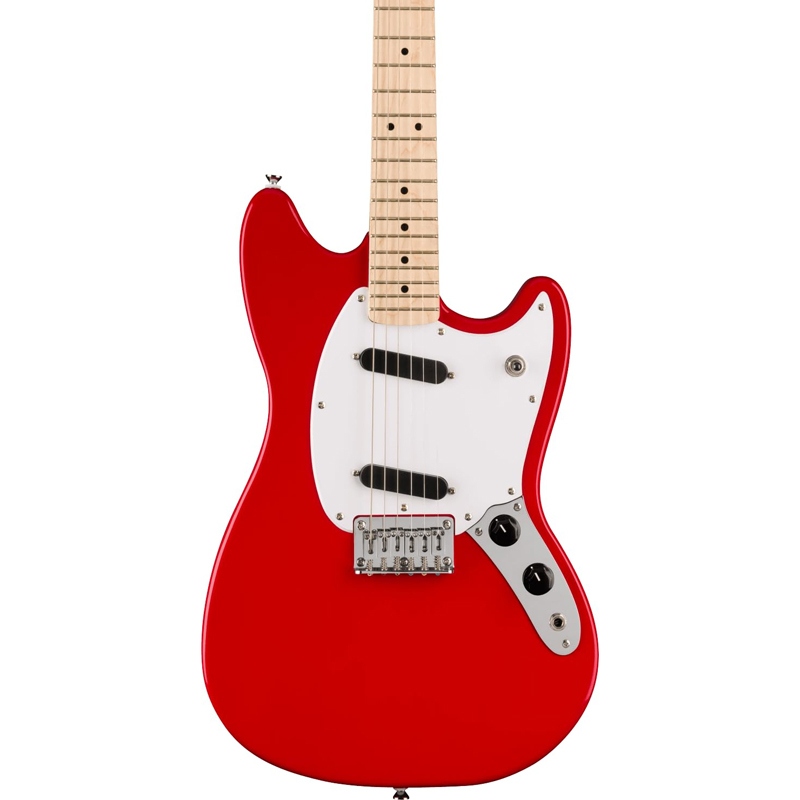
Squier makes some really good guitars and basses, using their sister company Fender as a basis for most models. This Sonic Mustang has been stripped down and simplified somewhat, making it one of the best guitars for kids.
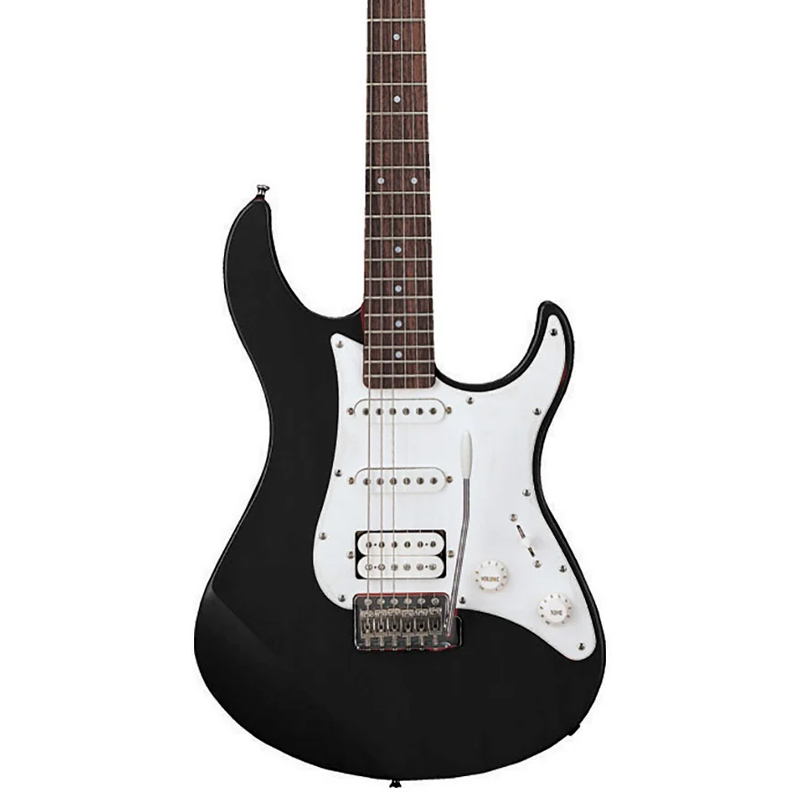
The Yamaha Pacifica range of electric guitars is one of the best-selling ever. They come in at a reasonable price, and they’re made to a high standard. This particular model has everything you’d need for a younger player, and nothing you don’t.
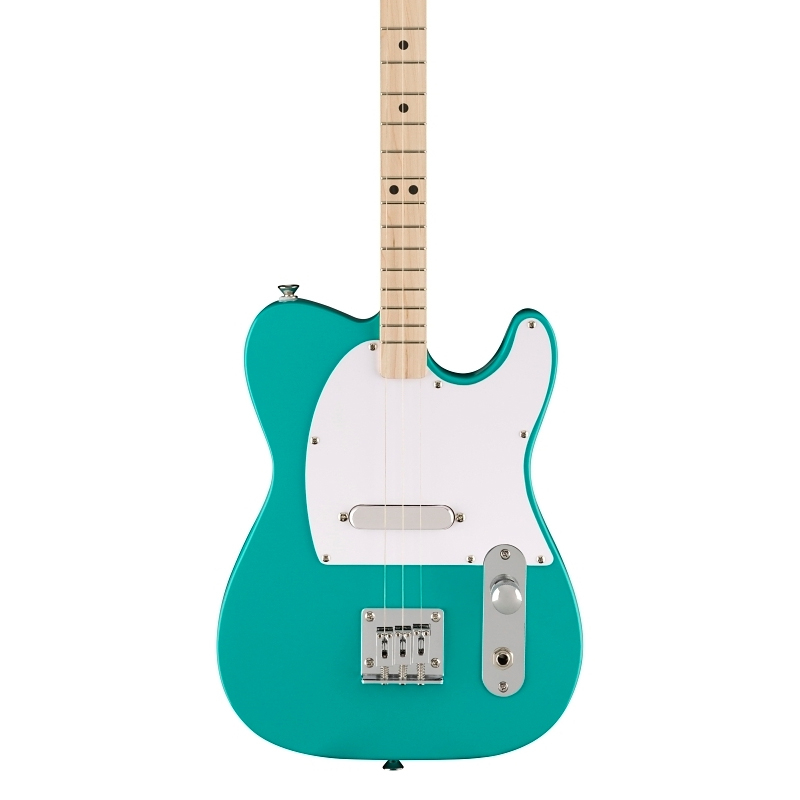
This is perfect for younger children that are showing an interest in guitar. Ukulele can be a good place to start, but if they want to take the next step, then something like this Loog Telecaster could be just the thing!
Best acoustic overall
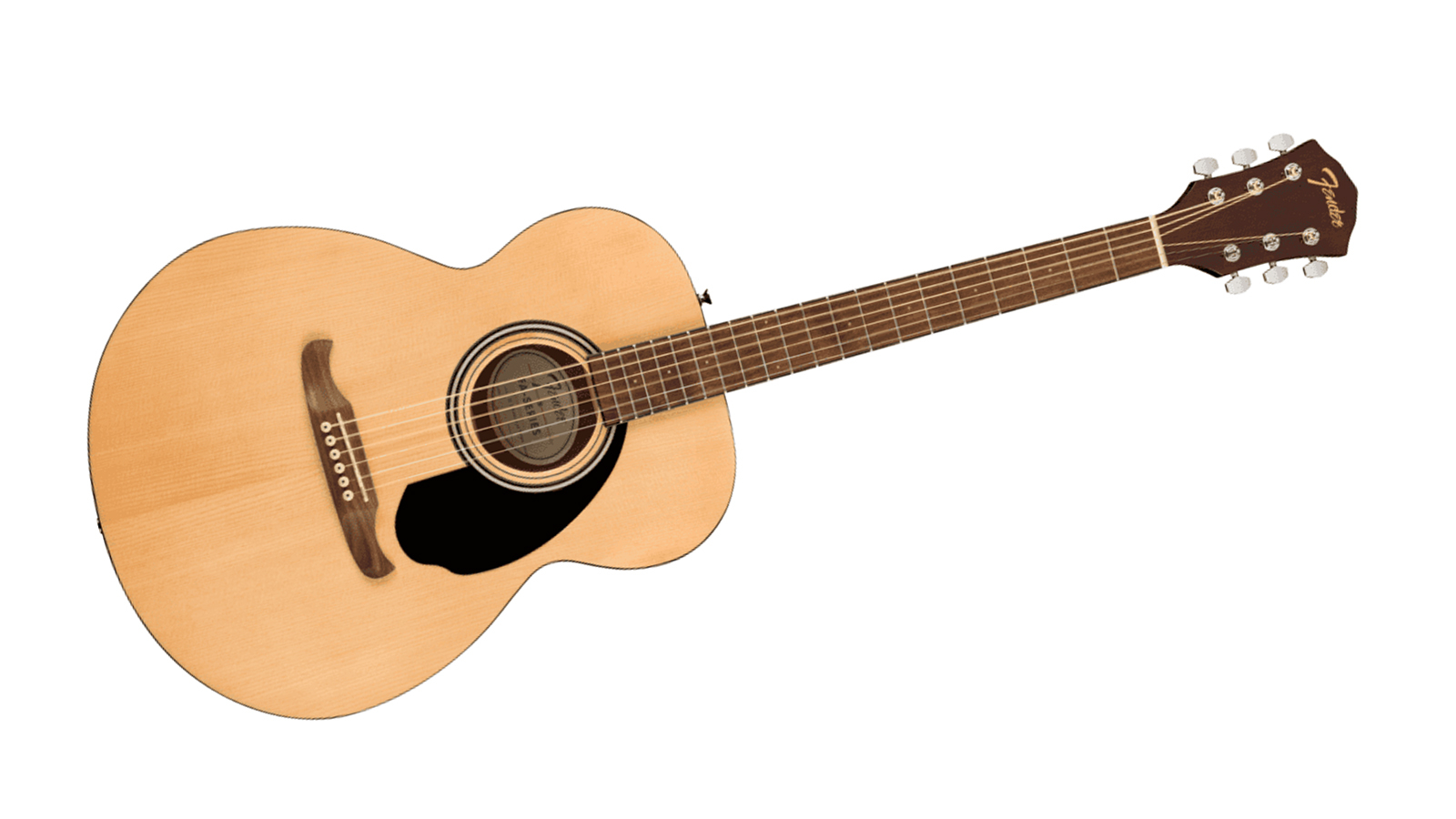
1. Fender FA-135
Our expert review:
Specifications
Reasons to buy
Reasons to avoid
This concert-sized offering from Fender makes for a perfect starter guitar for kids. The concert body shape is slightly more compact than many other acoustic guitars, allowing smaller arms and hands to reach around to the strings and frets. It even features Fender’s ‘easy to play’ neck profile which does exactly what you’d expect.
It features fully laminate wood construction, so, though the tone might not be as rich as a guitar using solid wood, it is more resistant to changes in temperature and humidity, plus it’s very affordable. It’s got a spruce top and mahogany back and sides yielding a nice, bright tone, balanced out by a warm, woody midrange. It’s versatile so will work for any style of music a budding player might want to get stuck into.
Best for older kids
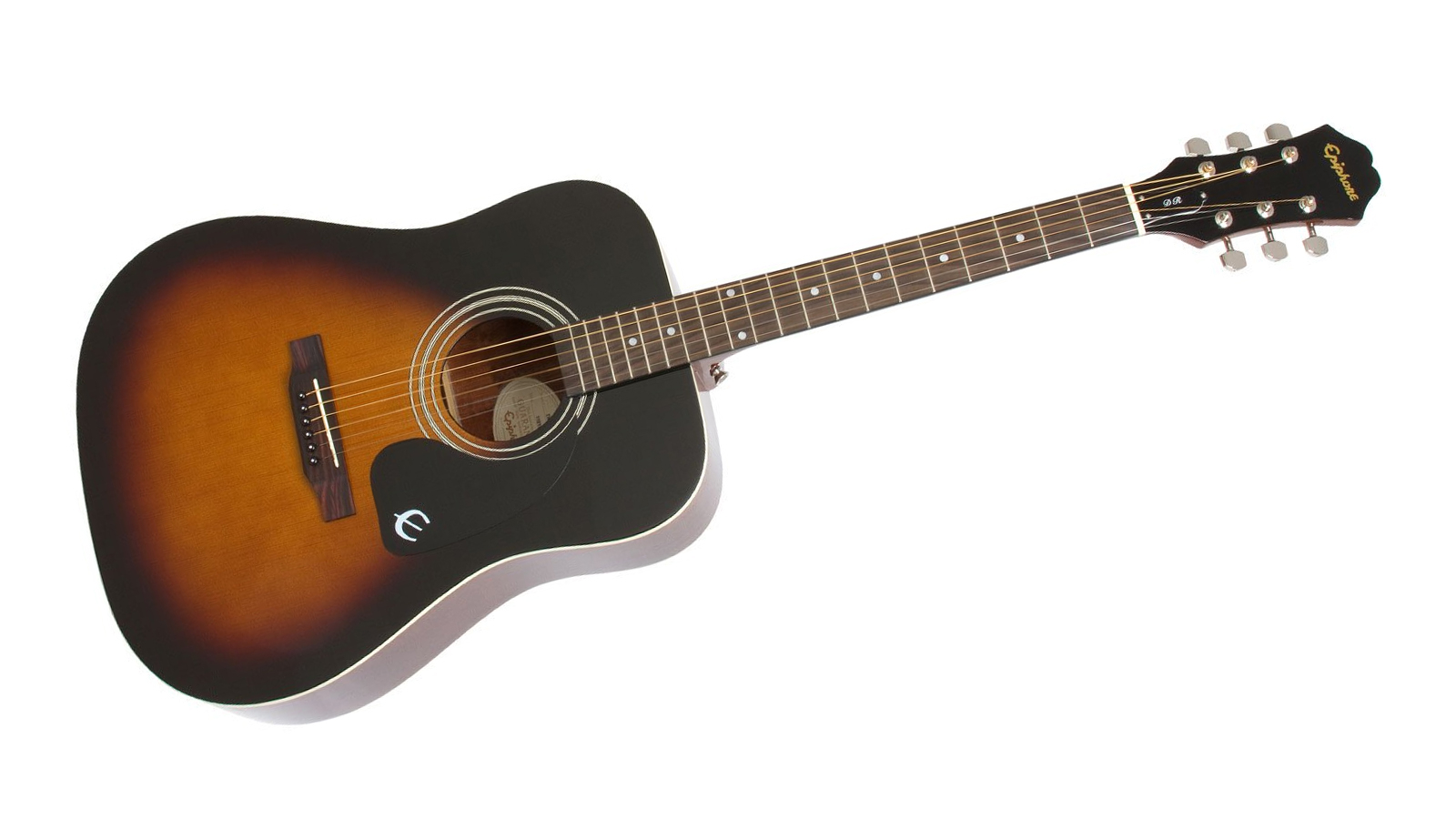
2. Epiphone DR-100
Our expert review:
Specifications
Reasons to buy
Reasons to avoid
The Epiphone DR-100 has been around for quite some time now. It marks one of the entry points into the Gibson family of brands and is ideal for kids, particularly those on the bigger side.
This is a dreadnought, so it isn’t particularly small, but compared to other dreads, it’s very slightly slimmer which does make it a little easier to play. The neck profile is also very friendly to beginners and children with it being nice and slim.
It’s got a laminate spruce top and laminate mahogany back and sides so it sounds bright, but balanced, with enough of that classic dreadnought punch. If you’re recording or gigging seriously, you might want something a little further on in Epiphone’s lineup, but for beginners or kids, it really is a fantastic choice.
Best premium option
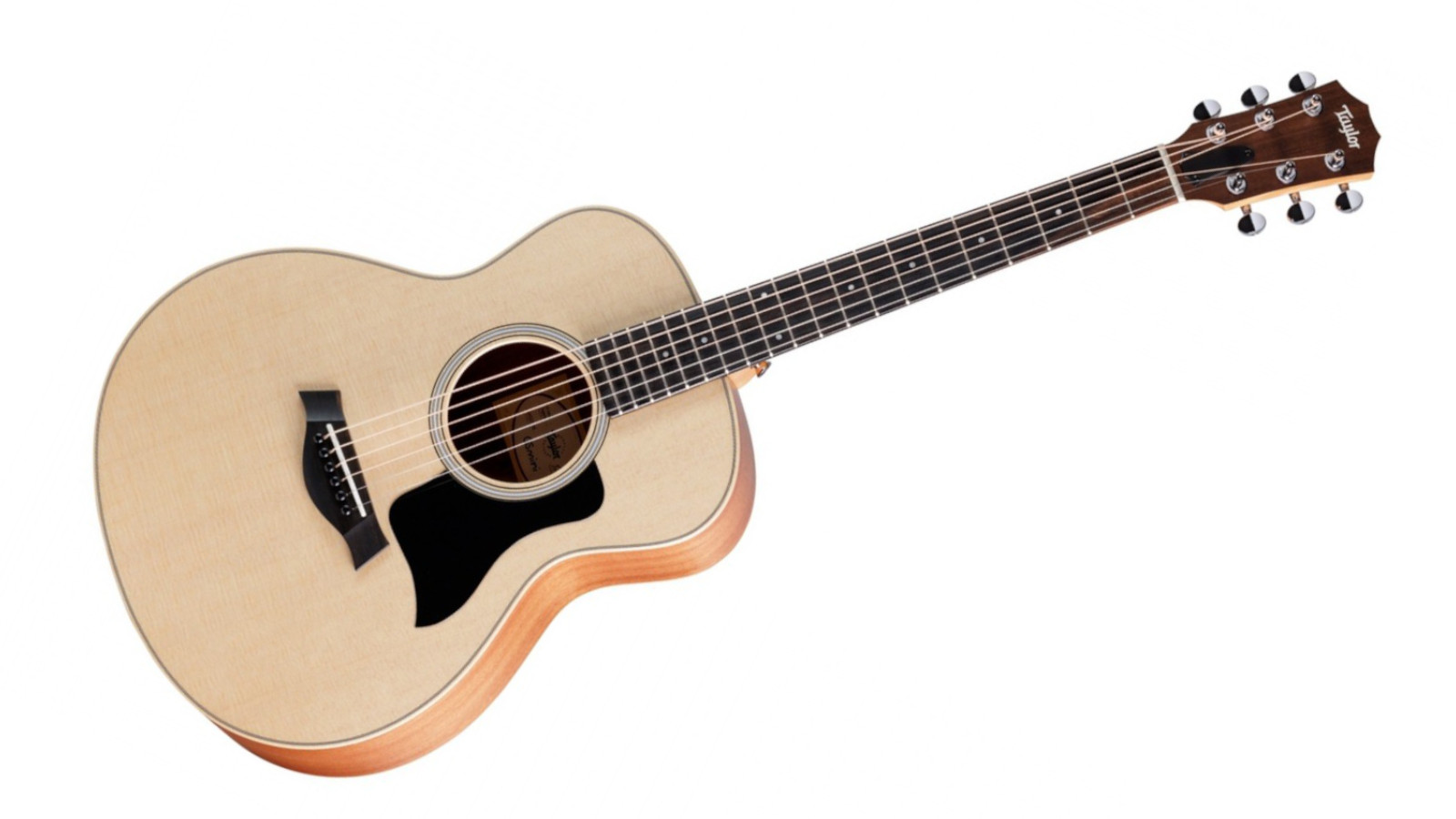
3. Taylor GS Mini
Our expert review:
Specifications
Reasons to buy
Reasons to avoid
The Taylor GS Mini is fairly close to being a 3/4 guitar, but it retains the same string spacing as a full size guitar. This means that for kids just starting out, chord stretches and scales are made easier, as the frets are all slightly closer together, but as they grow, they shouldn’t find that their fingers are cramped, thanks to the 1-11/16” nut width.
The GS Mini is one of the most popular smaller sized guitars there is, and for good reason. It sounds fantastic, offering superb projection and dynamics. Notes ring out clearly, and there’s a beautiful brightness to the tone that only gets better the more you play it. You’ll even see some professionals using them on stage. Taylor is known for its fantastic neck profiles and action, and the GS Mini is no different.
Spec-wise, a solid sitka spruce top is paired with layered sapele back and sides, plus you’ll find high quality ebony on the fingerboard – just like Taylor uses on its top of the range guitars. Should you want a variation in tone, or perhaps a pickup, then there are multiple versions of this guitar available.
Best classical for kids
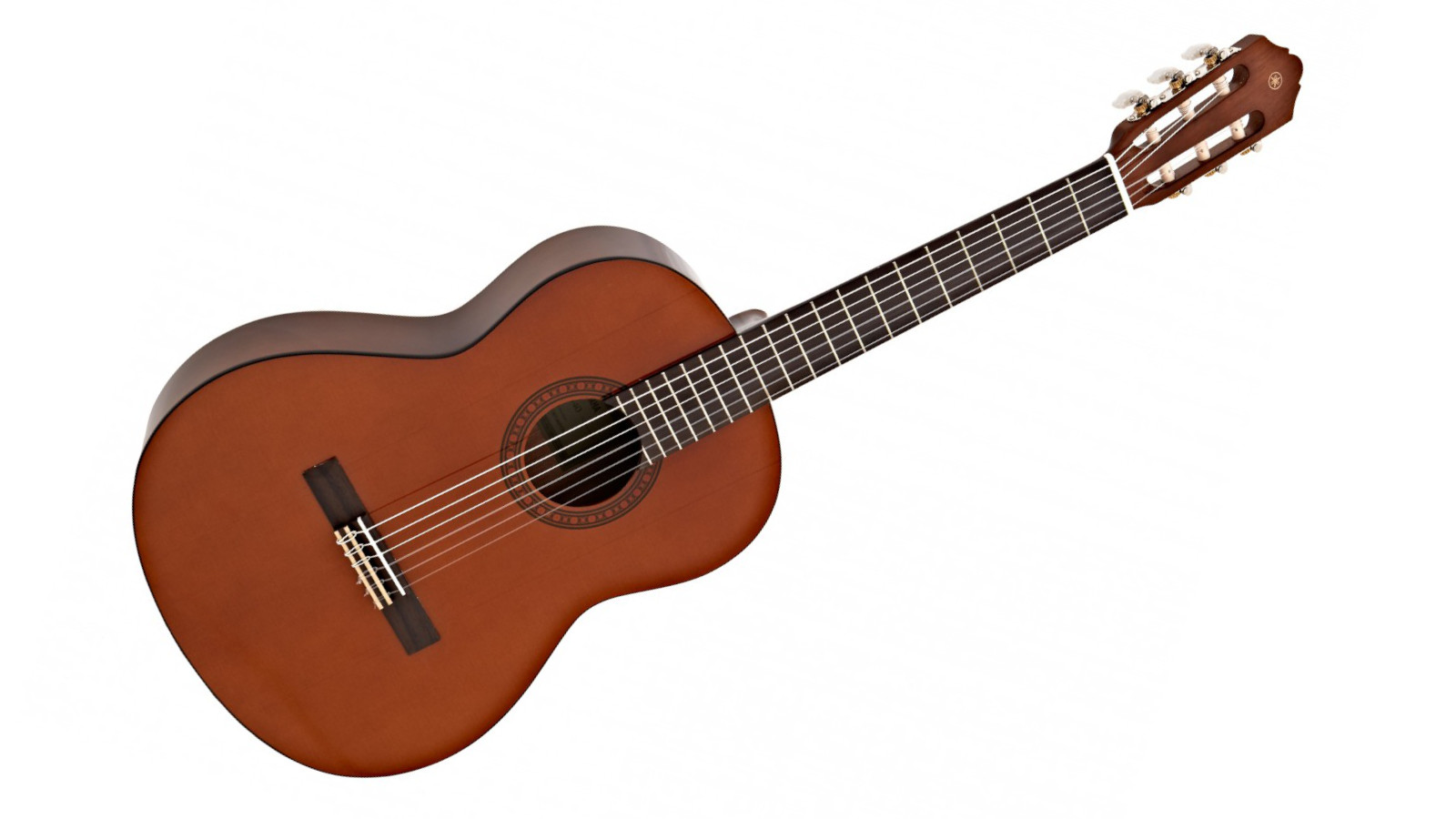
4. Yamaha CS40 MKII 3/4
Our expert review:
Specifications
Reasons to buy
Reasons to avoid
Some kids just starting out might find steel strings a little too tough. That’s where nylon-strung guitars can be really helpful. The strings feel much softer underneath their fingers, so they’re less likely to be put off playing altogether whilst they’re building up the calluses on their fingers. These strings also yield a mellower and warmer tone too, which can work well for certain styles of music.
The Yamaha CS40 is a 3/4 sized guitar, making it perfect for younger beginners or those that prefer something smaller. The dimensions of everything on this instrument have been scaled down from the full-sized version, making stretches on the fingerboard and reaching around to pluck the strings easier.
Yamaha is of course well known in the music world for creating high quality instruments of all levels. The CS40 is built well and will act as a worthy starter instrument for a child wanting to learn the guitar.
Best electric overall
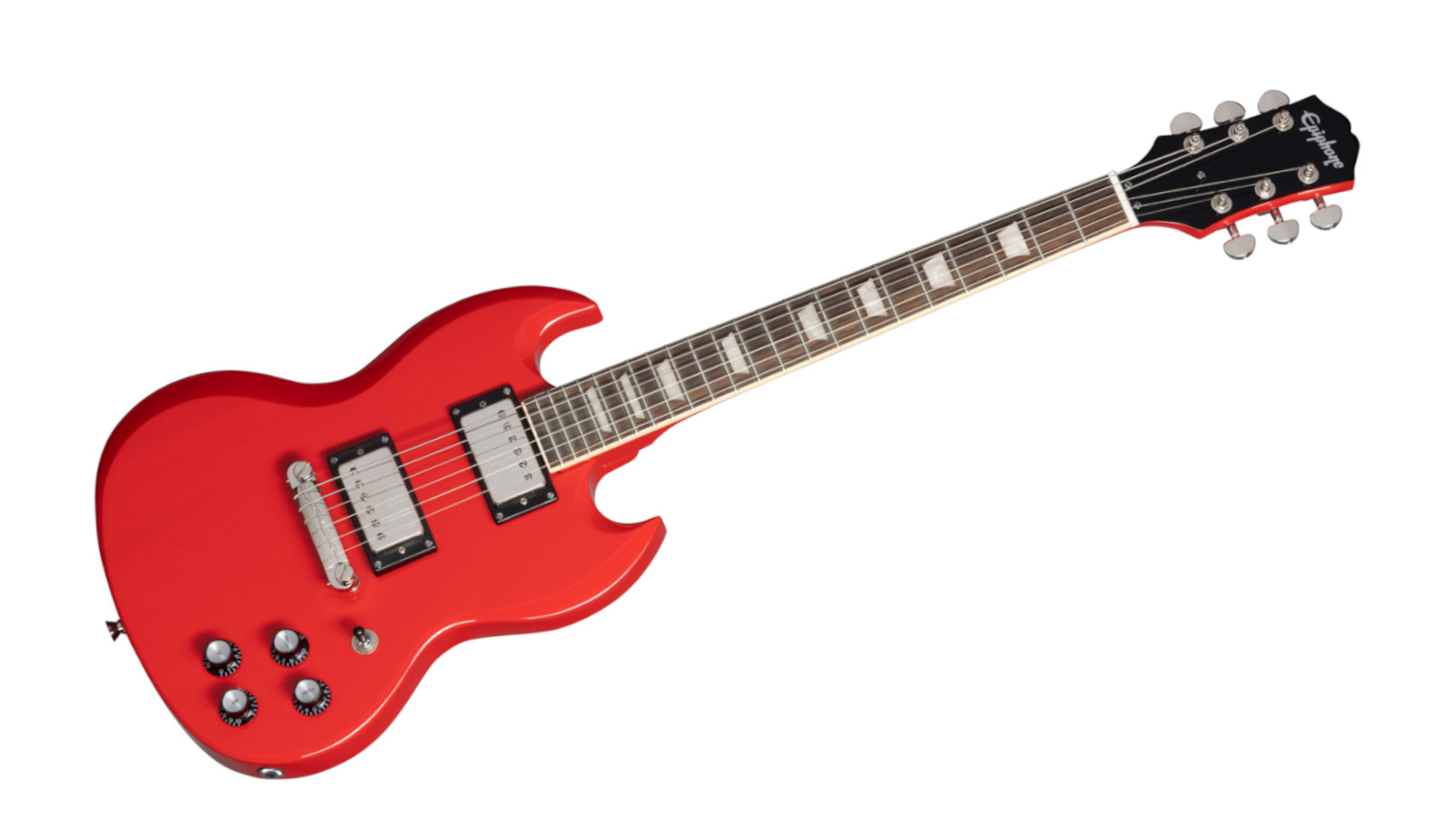
5. Epiphone Power Players SG
Our expert review:
Specifications
Reasons to buy
Reasons to avoid
Built especially with younger players in mind, the Epiphone Power Players SG is built extremely well, and features a pair of really punchy sounding humbuckers. This makes it one of the best guitars for kids who want to explore the world of rock, blues, metal or pretty much any other style of electric guitar-based music.
This compact SG sits around the 3/4 size mark, with a 22.73” scale length, thin neck profile and smaller body. Chord shapes are easier to get right, the action can be set nice and low, plus smaller players won’t have as much trouble reaching around the body to get to the strings.
Because Epiphone has made and fitted this guitar with good quality hardware and components, the guitar rings out nicely, before you even plug it in. It also holds its tuning and intonation well – something that can really be a problem with kids’ guitars.
Best budget electric
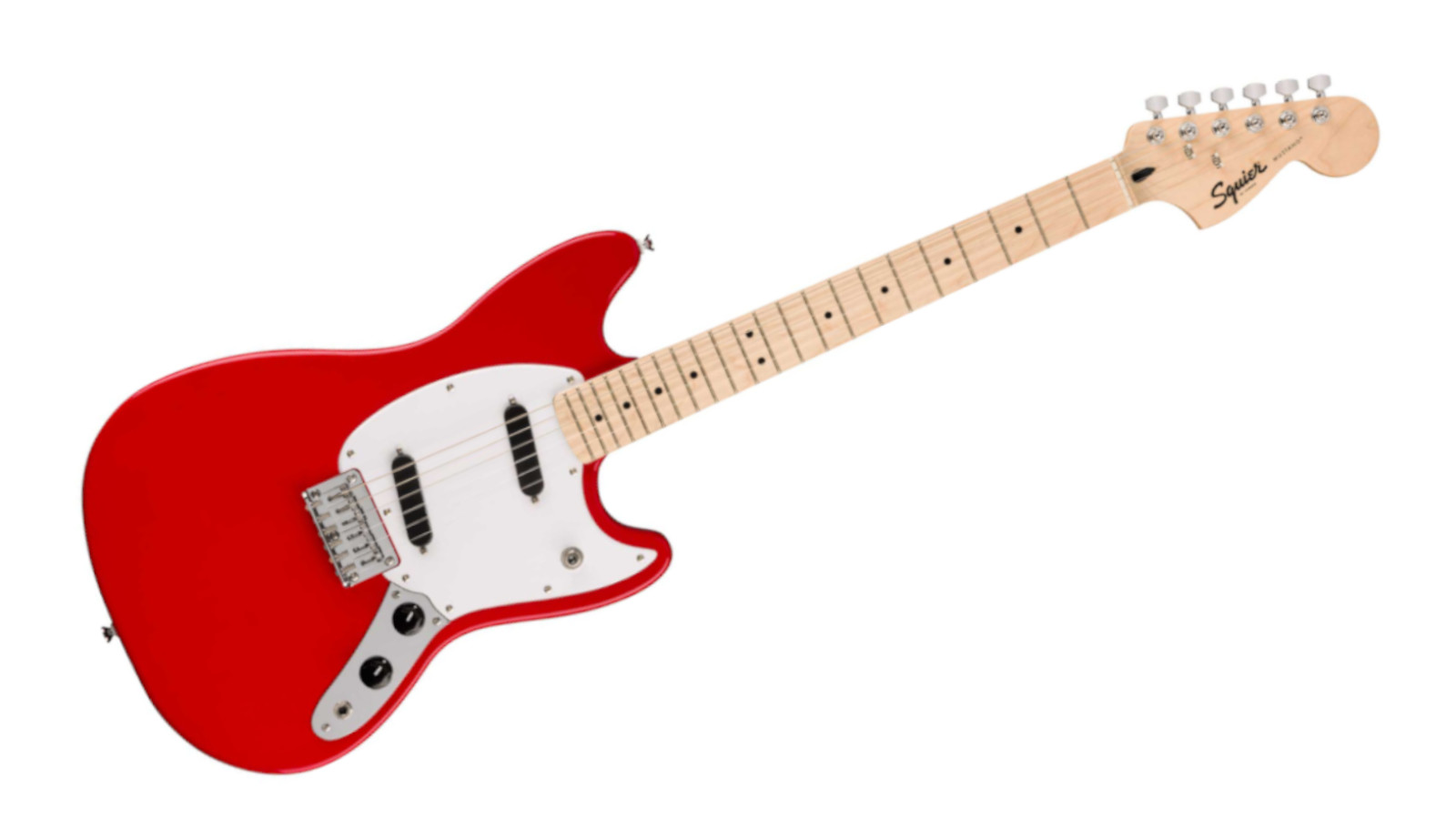
6. Squier Sonic Mustang
Our expert review:
Specifications
Reasons to buy
Reasons to avoid
Squier makes some really good guitars and basses, using their sister company Fender as a basis for most models. This Sonic Mustang has been stripped down and simplified somewhat, making it one of the best guitars for kids.
Though it is a full size model, the Mustang has a shorter 24” scale, making stretches across the fingerboard and chord shapes a little easier to fret for small hands. It’s also got a nice, slim neck profile so there isn’t much to battle with there. The layout has been simplified too – the Sonic Mustang does away with the individual pickup switches, opting instead for an easy to use three-way pickup selector.
The single coil pickups are fairly bright sounding, with lots of articulation and clarity. For kids about to discover the worlds of rock, alternative and indie guitar, this one is perfect.
Best electric for 11+
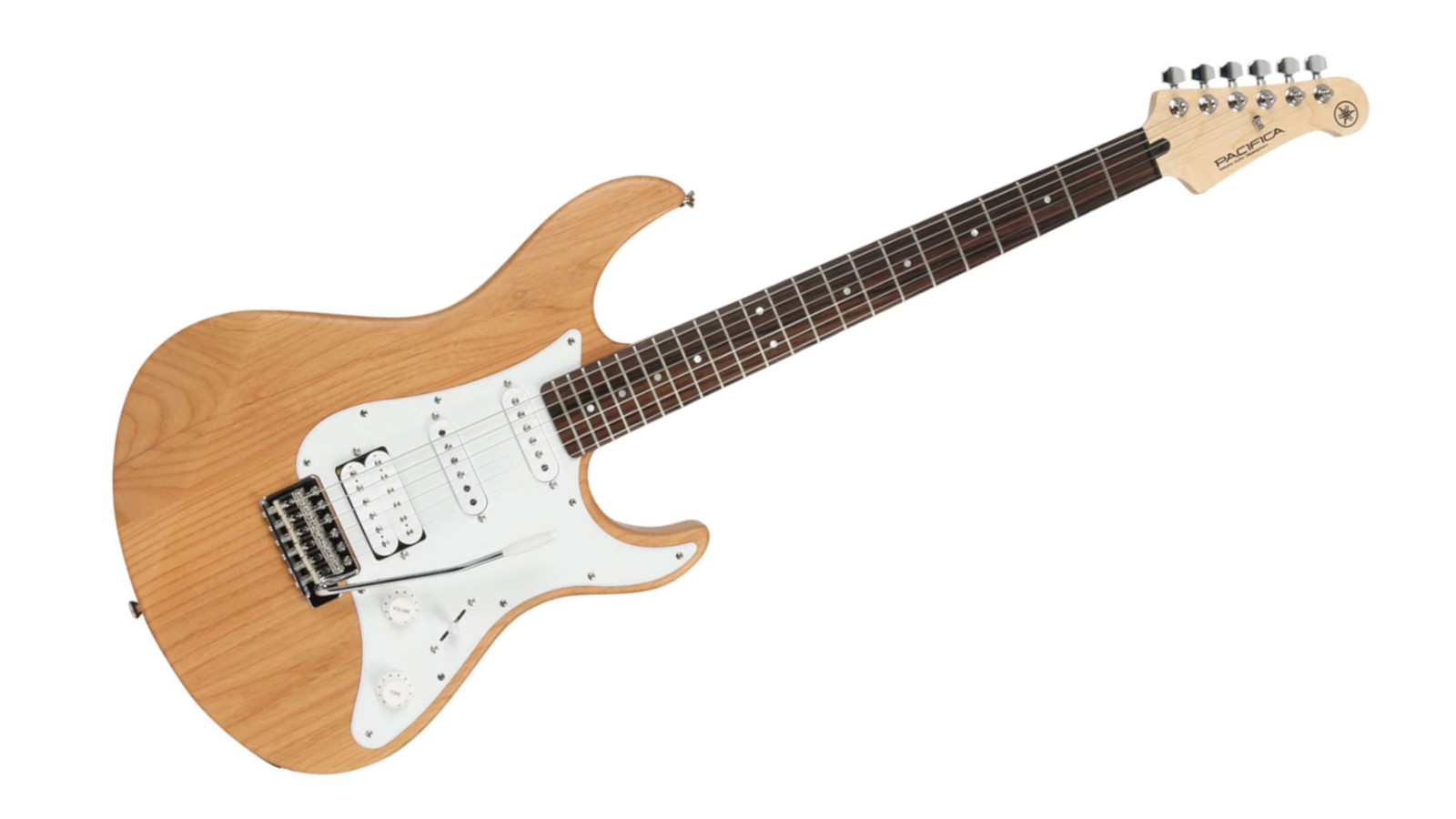
7. Yamaha Pacifica 112J
Our expert review:
Specifications
Reasons to buy
Reasons to avoid
The Yamaha Pacifica range of electric guitars is one of the best-selling ever. They come in at a reasonable price, and they’re made to a high standard. This particular model has everything you’d need for a younger player, and nothing you don’t.
This has an HSS configuration and a 5-way pickup selector, making it extremely versatile. If your child is nearer the start of their playing journey then an HSS guitar can be useful as it allows them to discover the characteristics associated with both humbuckers and single coils, and can cover a wide range of musical styles.
The Pacifica is a full size guitar (good, as it means they won’t grow out of it), but the body is quite thin and has curves and contours in the right places, allowing for easy access to both the strings and the higher-up frets. The neck profile is also very playable for small hands.
Best electric for 3+
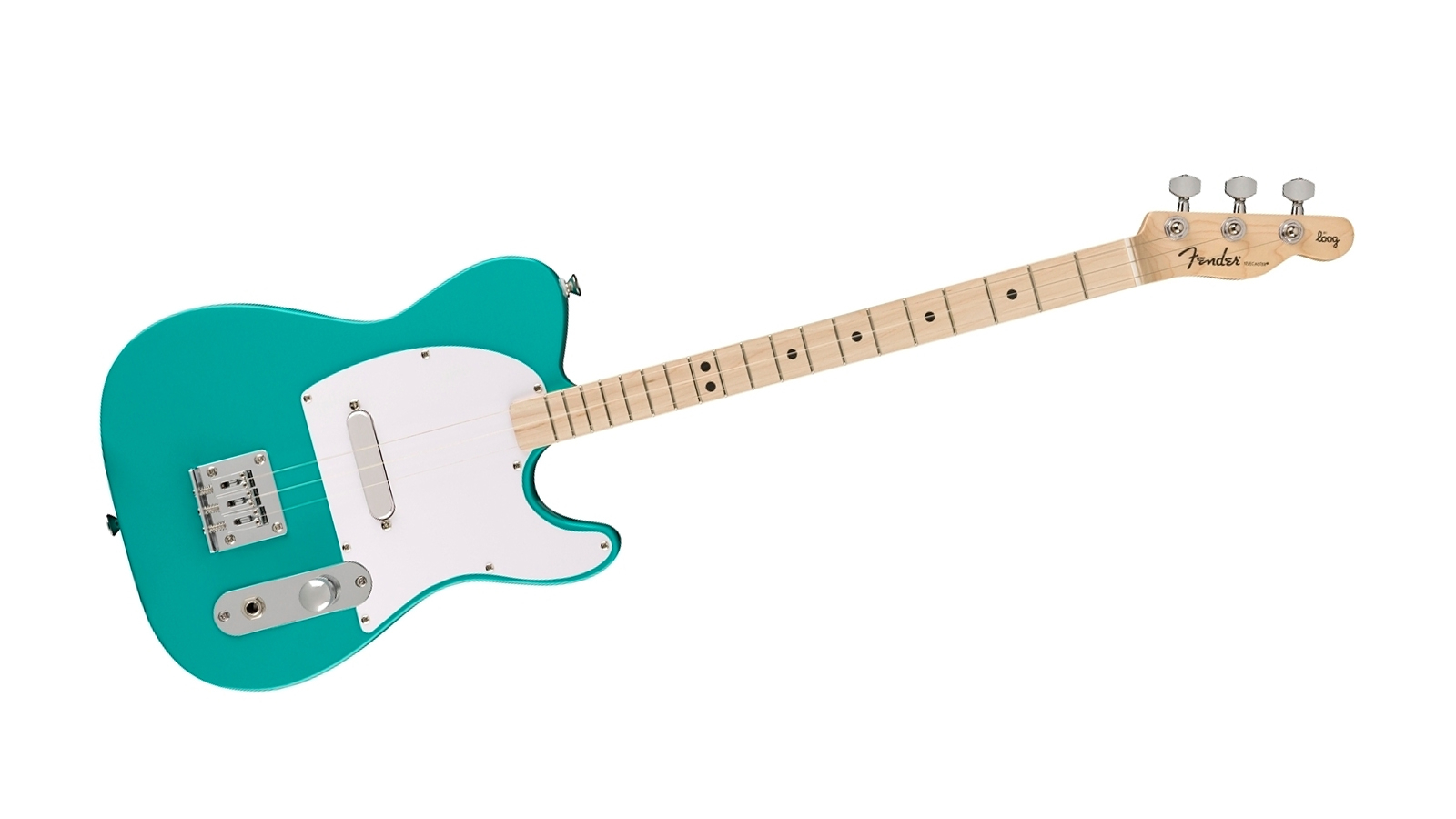
8. Fender x Loog Telecaster
Our expert review:
Specifications
Reasons to buy
Reasons to avoid
This is perfect for younger children that are showing an interest in guitar. Ukulele can be a good place to start, but if they want to take the next step, then something like this Loog Telecaster could be just the thing!
It’s made in collaboration with Fender, and sports the timeless Telecaster body shape. It’s fitted with a single pickup and just one knob so it’s very easy to use. The sound is very jangly, and tuning is higher than a standard guitar, plus it’s only got three strings making it more manageable for very young players.
If a child is craving an electric guitar, but you know they’re not quite ready for a full-sized, 6-string instrument, then this a good in-between. It even comes with a range of helpful learning material to get them going.
Buying Advice
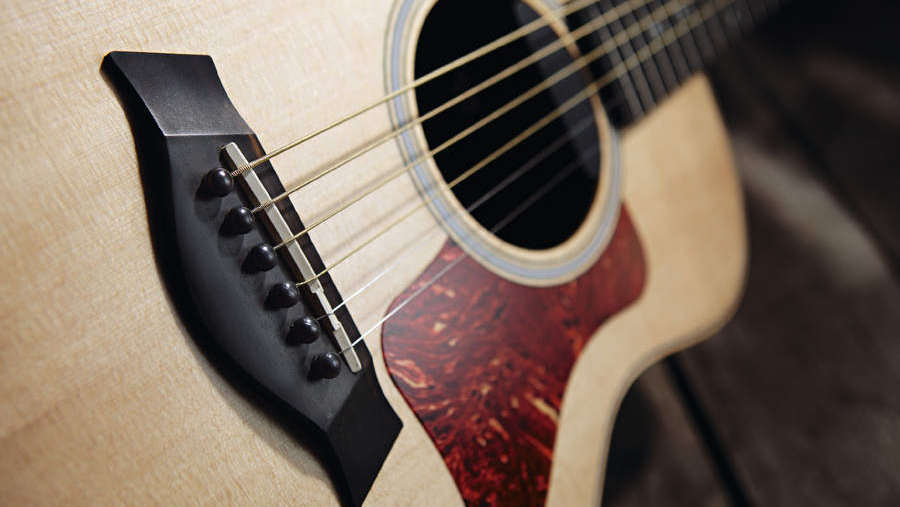
Electric or acoustic?
Of course, one of the main considerations to make when looking for the best guitar for kids is whether to go electric or acoustic. There is no ‘correct’ one to choose first, should you be seeking a beginner instrument. It boils down to what they want to learn – if they’re leaning more towards rock music, then it’s likely they will progress more quickly with an electric. Likewise, if it’s acoustic or pop music that they’re into, then an acoustic might enthuse them more. It’s all about keeping the interest up in those early days.
Pickups
With the electric guitar, the pickups play a huge part in the sound that you hear. Most electric guitars made with kids in mind are going to be fitted either with humbuckers or single coils – or in some instances both.
Humbuckers yield a fatter, warmer and chunkier sound, and single coil pickups will sound brighter and thinner with generally less sustain. Both can be used for a wide variety of musical styles, and genres like rock, blues, jazz, and pop will see players turn to either/or types of pickups.
If you’re looking at an acoustic guitar, then it’s likely you’ll come across some models that are also fitted with pickups. These aren’t essential to getting a good acoustic sound, but are useful if the instrument is going to be used for live performance – maybe at some local gigs, open mic nights or even busking sessions.
Scale length
A shorter scale length can be something to look out for when shopping for the best guitars for kids. On a full sized guitar, 24” and under will generally be considered short scale, though smaller guitars will also normally have a short scale too.
The distance between the nut and the string saddles being shorter means that, first of all, the strings feel a little slinkier when tuned up to standard, which can really help some beginners get the hang of particular techniques, like string bending. It also means that the frets are closer together, and therefore the notes are packed in tighter. Thus getting from one note to another, or making stretches within chords, can be easier to finger for smaller hands.
Size/age
When picking the best guitar for kids, you might be trying to line up their age with a certain size or model. However, the reality is that different children will get on better with different sized instruments. You do see kids as young as 6, 7 or 8 playing full sized guitars; even bigger-bodied classicals, so there aren’t necessarily hard and fast rules.
However, if you know that a full size guitar will be too much, then a 3/4 guitar can be great for children aged approximately 7-11. You can even go smaller, if they’re younger. Some manufacturers offer something in between 3/4 and full size, which can aid with chord stretches and scale fingerings, but will last them a little longer as they grow.
Price
So, how much do I need to spend to get a good guitar for a child? It depends where they are in their playing journey really. You can get a decent starter instrument for around £150/$200. You probably won’t get solid woods, but you’ll get something that’s well made, with reliable hardware that will enable a child to get to grips with the instrument and make some good progress.
From my time working in music retail, I did find that putting something like a GS Mini or Sheeran into the hands of a child did often help. Whilst they might not be ‘guitar experts’ per se, the quality and craftsmanship that goes into these instruments is obvious to anyone as soon as you hold it. That’s why some of the guitars in this list are on the slightly more expensive side. Budget may not always allow for it of course, but if it does, it’s always better to go for something quality.
How we test
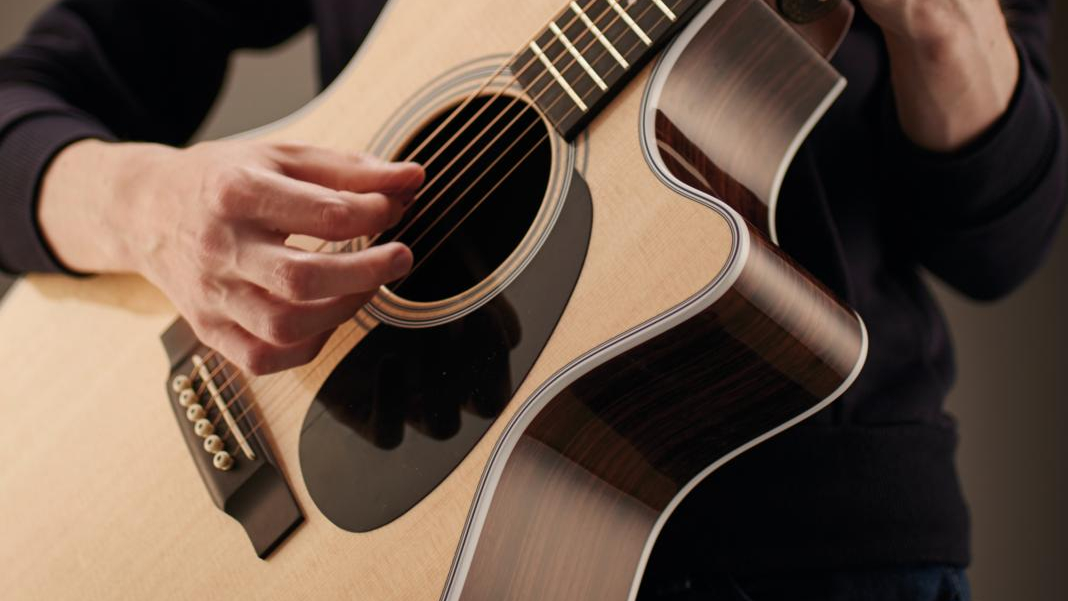
At Guitar Player, our team of writers aren't just music enthusiasts; we're real-life musicians. Our hands-on experience with kid-friendly guitars ensures that our reviews and recommendations are backed by practical knowledge and real-world testing.
When it comes to selecting the best guitars for kids, we leave no stone unturned. Meticulously evaluating factors like tonal versatility, sonic character, build quality, and value for money, it's only after rigorous testing in a variety of playing scenarios do we choose products for our guides. We stand by our selections, ensuring that we only recommend guitars that we'd use ourselves.
Read more on how we test gear and service at Guitar Player.
All the latest guitar news, interviews, lessons, reviews, deals and more, direct to your inbox!
After spending a decade in music retail, I’m now a freelance writer for Guitar Player, Guitar World, MusicRadar and Reverb, specializing in electric and acoustic guitars bass, and almost anything else you can make a tune with. When my head’s not buried in the best of modern and vintage gear, I run a small company helping musicians with songwriting, production and performance, and I play bass in an alt-rock band.
